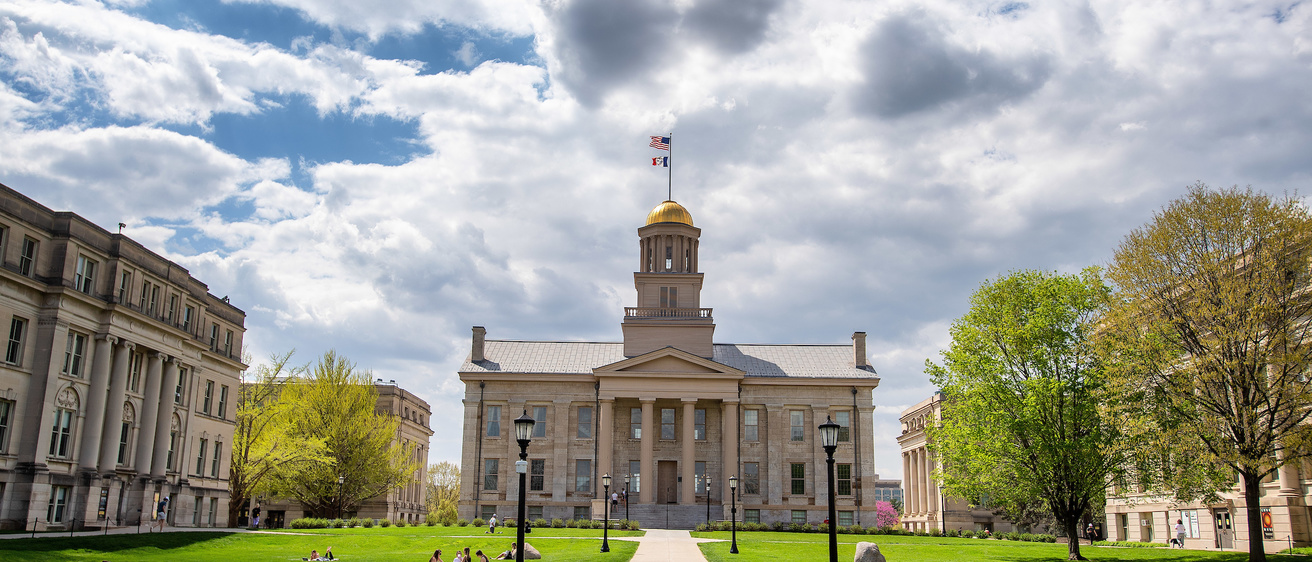
Click here to view the 2021 Student Survey Report
The University of Iowa’s status as one of the United States’ leading research universities demands the robust exchange of ideas, which is why we are committed to fostering an equitable and inclusive environment for all who join the UI community. Our success depends on the diversity of our students, faculty, and staff by creating an environment where all can thrive. We want — and expect — this to be a safe and inclusive campus.
It is our job to listen when faculty, staff, and students share concerns and to determine what changes we might need to make to improve our campus climate. This survey is one way for voices to be heard.
As an educational and research institution, the University of Iowa is fully committed to free inquiry and vigorous debate. Free expression, academic freedom, and diversity of perspectives are all crucial to the fulfillment of our core mission. The robust exchange of diverse ideas is the essence of a public research university.
Results of the 2021 Campus Climate Survey show an overwhelming majority of undergraduate, graduate, and professional students who took the survey report feeling like they belong at the University of Iowa or in their program of study, with 79% of undergraduates, 89% of graduate students, and 95% of professional students reporting this sense of belonging.
During the spring 2021 semester, the UI administered a series of climate surveys for students. Undergraduate and graduate students participated in the national-level Student Experience in the Research University (SERU) and Graduate Student Experience in the Research University (gradSERU) surveys. Professional students took an internally developed campus climate survey.
“The survey report analysis focuses on two core themes: perceptions of belonging on campus and equity in student achievement,” says Andre Perry, director of arts, engagement, and inclusion and senior advisor to the executive officer of the Division, of Diversity, Equity, and Inclusion.
“These reports strike a balance between showing us how students are feeling as members of the overall campus community and how they are navigating academic achievement at the UI through the lens of equity,” says Perry.
Most students also report that their social identity or characteristics are respected on campus, though certain social groups were less likely to agree. Undergraduates (70%) and graduate students (62%) who identify as trans woman, trans man, genderqueer, gender non-conforming, non-binary, or more than one gender identity (TGNC) are less likely to agree their identity is less respected on campus. Complementing that data, undergraduates (61%) and graduate students (77%) who identify as TGNC agree they belong at the UI or in their program.
In terms of political beliefs, undergraduates (44%), graduate students (50%), and professional students (41%) who identify as having conservative political beliefs are less likely to agree their identities are respected on campus. However, most undergraduates (80%), graduate students (92%), and professional students (96%) who identify as having conservative political beliefs agree they belong at the UI or in their program.
“The data points about belonging offer useful framing for UI leadership,” says Perry. “They suggest many students find belonging on this campus, while also affirming the work to build a more inclusive environment where all voices feel heard and respected must continue full force ahead.”
In terms of equity in student achievement, the responses show most students feel respected by their advisors or faculty, including 93% of undergraduates, 97% of graduate students, and 94% of professional students. Most students also report feeling their advisors and faculty have time for them when needed, though professional students (42%) are less likely to agree. Furthermore, only 43% of undergraduates report that they have worked with a faculty or staff member they think of as a mentor.
“The data signal a possible strong connection between students and their faculty and advisors,” says Perry. “We must further explore the responses from professional students regarding advisor availability as well as undergraduate responses about mentorship. Leadership realizes these relationships between students, advisors, and mentors are crucial elements in attaining academic achievement. With that in mind, we are committed to listening and learning more. Innovating and reinforcing best practices and protocols for student support are high priorities.”
Looking Forward to the 2022 Survey and Beyond
The release of the 2021 student reports leads directly into the administration of the 2022 Campus Climate Survey, which opens on March 29. The survey will serve students, faculty, staff, and post-doctoral scholars.
“We would love to see robust participation in the spring 2022 survey. The Campus Climate Survey is one of our most effective tools to give voice to every UI constituent. While some conversations need to happen face-to-face, we also realize how important it is to have this confidential outlet,” said Dr. Liz Tovar, executive officer and associate vice president.
The division also hopes that the UI campus will begin to see the survey as an ongoing process of continual self-examination and improvement. Perry noted, “The survey and the reports are important events, but they are only part of the process. This fall, our team will meet with leadership, faculty, staff, and students to talk through the reports, and we will follow up with them in Spring 2023. This is ongoing work, a conversation that grows over time.”
Analysis and reports from the Spring 2022 survey will be shared in Fall 2022 with plans for the next survey taking shape for Spring 2024.
The first UI Campus Climate Survey was administered in 2018, followed by a faculty, staff, and post-doctoral scholar survey in 2020 and the student survey in 2021.
Tovar says while the division acknowledges the results are from the previous academic year, which was an unprecedented time for college students around the world due to the COVID-19 pandemic, it’s still important to share the data with the campus community.
“We have bolstered our staff capacity in recent months and aim to speed up the reporting process going forward,” says Tovar. “That said, we will always prioritize taking time to understand the data rather than releasing it too quickly.”
View the 2021 Student Survey: Click Here
Watch the Journey to Unity video series: Click Here
Receive the Journey to Unity newsletter: Click Here
Visit the Campus Climate homepage: Click Here
